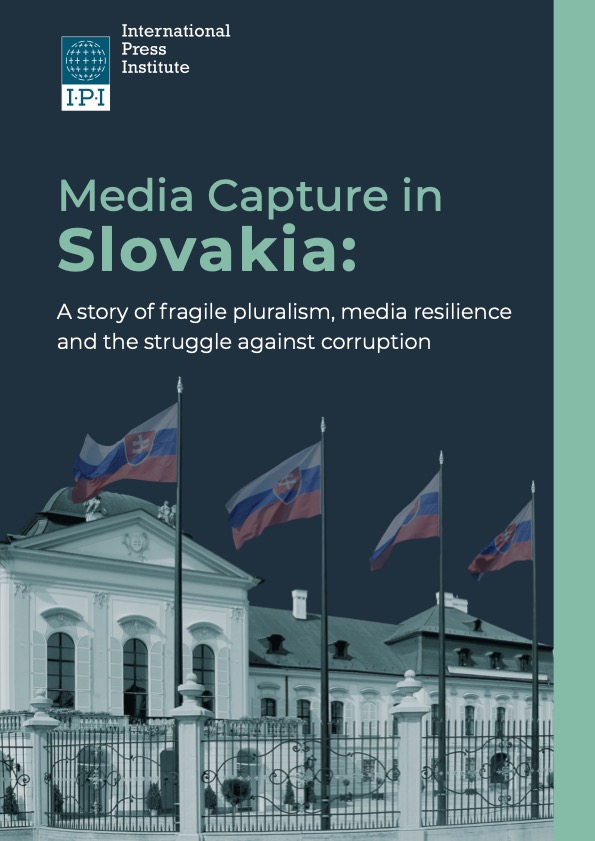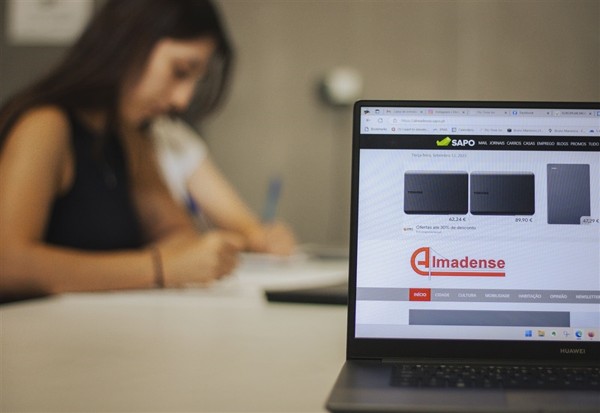The International Press Institute (IPI) today published the new report ‘Media Capture in Slovakia: A story of fragile pluralism, media resilience and the struggle against corruption’.
The report, authored by Peter Hanák, explores the extent of media capture in Slovakia.
Overall, the report finds that media pluralism remains relatively strong compared with Slovakia’s neighbours in the Visegrád region. While the power of media oligarchs in the country remains problematic, there is a resilient independent media sector.
Nevertheless, a number of challenges exist that require both vigilance and reforms. Examples of the instrumentalization of media abound in particular as politicians and oligarchs have used media over which they have influence to discredit critical journalism and undermine efforts to prosecute the high levels of corruption exposed following the murder of investigative journalist Ján Kuciak and his fiancée, Martina Kusnirova, in 2018.
Though the public broadcaster, RTV Slovakia, currently enjoys relatively low levels of political pressure, it has a history of vulnerability to political interference and securing its stability and independence should be a priority. The failure of the government to depoliticize the appointments process and to finalise reforms over its financing leaves it highly vulnerable to political capture in the future.
Media regulators, while enjoying a level of relative pluralism in part due to Slovakia’s fragmented political landscape, still suffer from a political appointments process that affects the perceived levels of impartiality and professionalism of these bodies. Reforming the appointments process to prioritize criteria of professional expertise and political independence would greatly enhance the capacity and legitimacy of these bodies.
The distribution of state advertising remains highly vulnerable to abuse by politicians seeking to reward political allies in the media. This risk can be addressed by bolstering transparency and introducing rules that ensure all distribution decisions are based on objective, proportionate and non-discriminatory criteria.
Recent reforms to bolster independent journalism and press freedom have helped produce progress on safety and source protection, and by many measures the media is in good shape. However, vigilance and further reforms are required to shore up the country’s defenses against media capture to strengthen the independent press, and the report makes a number of recommendations to this end. With elections due in September there is fear that the progress made in recent years may be rapidly unwound. Moreover, while not directly related to media capture, the continued impunity for the masterminds of the murder of Kuciak and Kusnirova continues to cast a shadow over journalism in the country.
The report was commissioned as part of IPI’s series of reports into media capture in Central and Eastern Europe, which involves the capture of once-independent media houses by vested political or business interests, which collude to control the narrative and serve their own political and financial ends.In return for state advertising funds and lucrative contracts in other industries, governments and oligarchs find mutual benefits in media offering positive, compliant coverage. This stealth-like takeover of news media by oligarchic owners working with state authorities in many central and eastern European countries has severely distorted the free flow of information and eroded media pluralism, with deeply damaging effects on democracy.
For more information on IPI’s work on media capture in Europe please follow this link.
The report will be launched on May 9 at a press conference in Bratislava with the author, Peter Hanák. Further details on the launch event can be found here.
The report was published with the support of the Friedrich Naumann Foundation and as part of IPI’s programme of work in the Media Freedom Rapid Response (MFRR), a project which tracks, monitors and responds to violations of press and media freedom in EU Member States and Candidate Countries. MFRR is supported by funding from the European Commission.



